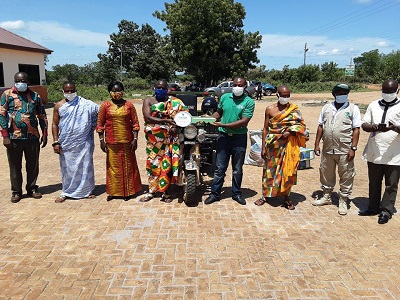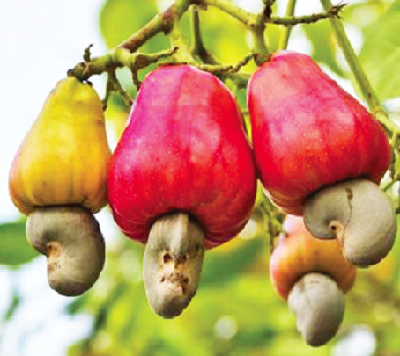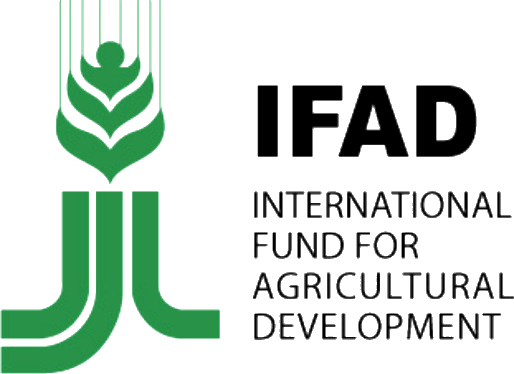Presentation of Reward to Conservation Agriculture Farmers.
 On 12.05.20, GASIP rewarded farmers who successfully adopted seven or more Climate Smart Agriculture technologies in two Districts – Banda and Kintampo.
On 12.05.20, GASIP rewarded farmers who successfully adopted seven or more Climate Smart Agriculture technologies in two Districts – Banda and Kintampo.
Farmers received personal protection gear for farm activities including Wellington boots, nose masks, long sleeve and trousers, eye goggles, and knapsack sprayers. The ultimate reward for each District was a tricycle, which was awarded to the best demonstration group for in the District.
This was based on the following criterion: (i) rate of adoption of the CSA technologies being promoted, (ii) yields from the demonstration farm, (iii) commitment of the Group, (iv) development of a Constitution or Group Charter, (v) establishment of live fencing using different plant species and (vi) creation of a 2-metre fire-belt around the demonstration field.
Dr. Edmund Akoto-Danso, the Climate Change Adaptation Manager of GASIP, speaking at the event, on behalf of the GASIP National Programme Coordinator, Mr. Klutse Kudomor indicated that, “as the cropping season is starting, GASIP will support about 1500 smallholder farmers from these 12 Districts with climate-resilient seeds and other inputs to cultivate a maximum of two (2) acres each, using various climate-smart agriculture technologies and techniques’.
He was optimistic that; ‘ by using the hybrid inputs given to them and employing various climate-smart technologies, together with and backstopping by the District Departments of Agriculture and other reputable partners, farmers will record excellent crop yields at the end of this cropping season.
He admonished all farmers not to cultivate acreages that they cannot manage, but rather combine the three key principles of Conservation Agriculture, together with other climate-smart agricultural practices such as the (i) use of climate-resilient seeds, applying the right quantity of fertilizer at the right time, (iv) appropriate land preparation devoid of slash and burn (v) appropriate planting methods (spacing), (vi) appropriate and timely weed and pest control (vii) timely harvesting of produce and storage for sustainable and profitable food production.
The award ceremony was attended by District Chief Executives, District Coordinating Directors, District Directors of Agriculture, and representatives from the various communities. At Banda, the traditional leaders graced the occasion as one of their own received an award.

 The Ghana Agricultural and Rural Development Journalists Association (GARDJA) and the Competitive Cashew initiative (ComCashew) of the German Development Cooperation (GIZ) have launched an advocacy initiative to help create a sustainable cashew sector in Ghana.
The Ghana Agricultural and Rural Development Journalists Association (GARDJA) and the Competitive Cashew initiative (ComCashew) of the German Development Cooperation (GIZ) have launched an advocacy initiative to help create a sustainable cashew sector in Ghana.



